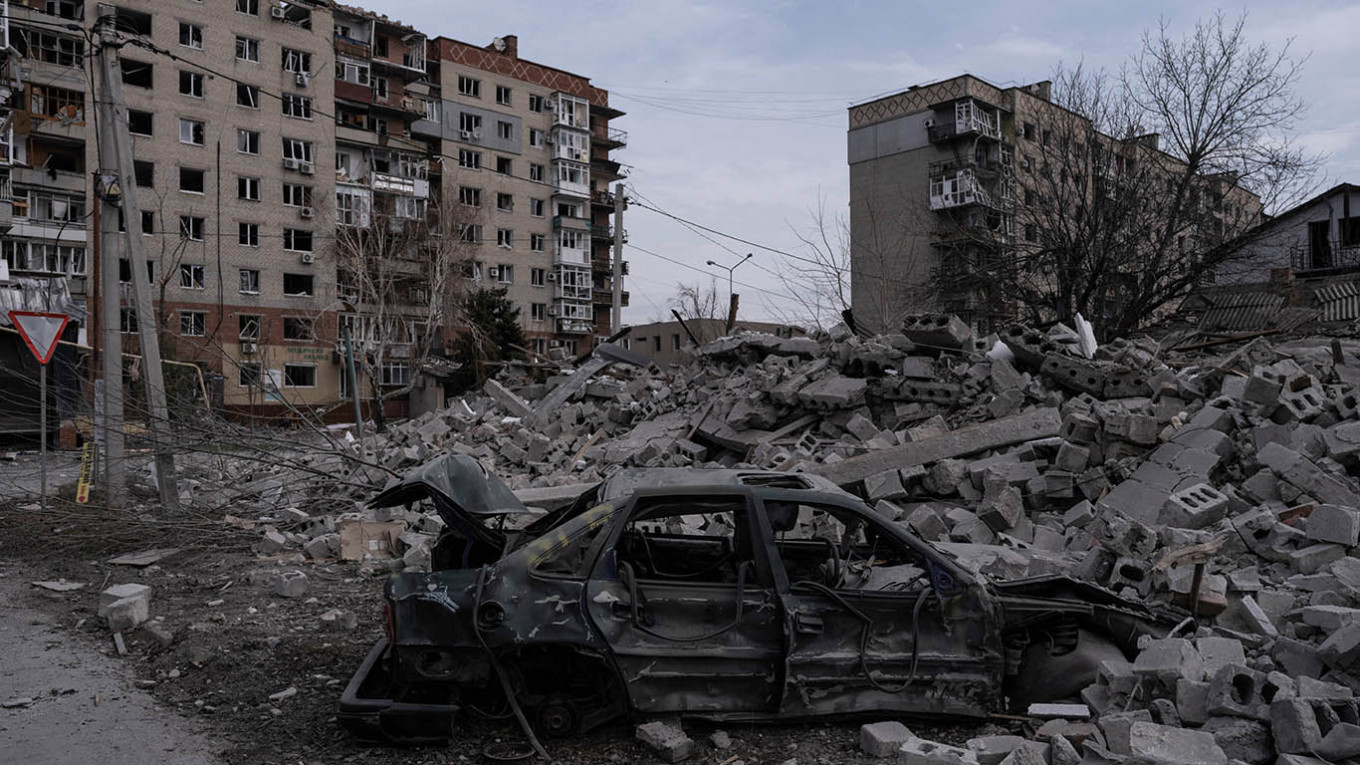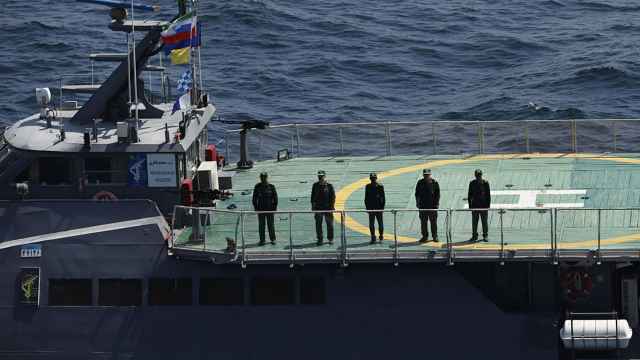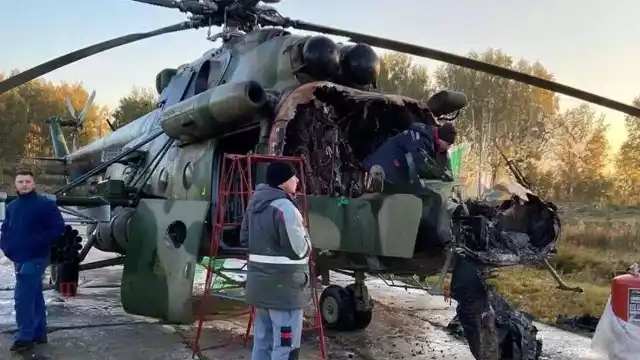Russia’s summer offensive in eastern Ukraine has zeroed in on Pokrovsk, one of the last major cities in the Donetsk region still held by Kyiv, as Moscow pushes to consolidate control of the entire area.
Russian troops are steadily advancing on the city from the north, east and south, using small infantry groups and drone surveillance to stretch Ukrainian forces already struggling with manpower and equipment shortages.
The fighting, some of the most intense of the summer, comes as the clock ticks on U.S. President Donald Trump’s ultimatum to Moscow to halt hostilities or face sweeping new sanctions — a move that appears to have had little impact on the Kremlin’s military calculus.
Videos shared by Ukrainian Telegram channels last week and analysts suggest that Russian sabotage and reconnaissance groups, or SRGs, have already infiltrated southern Pokrovsk.
Footage reportedly taken from a Ukrainian soldier’s helmet camera shows Ukrainian troops coming under fire while traveling through a residential area. Ukrainian open-source intelligence project Deep State confirmed the account, noting that depleted Ukrainian infantry units had left a gap in defenses, allowing Russian troops to slip into the city’s outskirts.
“The troops of the 155th Separate Mechanized Brigade and the 68th Jaeger Brigade had to urgently fix the situation to prevent it from turning into a disaster,” Deep State wrote on July 21, adding that some of the Russian SRGs had been destroyed.
But by July 25, pro-war Russian bloggers reported that new sabotage groups had infiltrated Pokrovsk.
Ukrainian officials have not commented on these reports.
“There are many enemy SRGs inside” conducting reconnaissance, the Ukrainian Telegram channel Sho na fronti? (“What’s on the front?”) reported, citing soldiers on the ground. “There is no clear defensive line; most [Ukrainian] commanders do not understand their areas of responsibility. What’s happening in the city is not a defense but total chaos.”
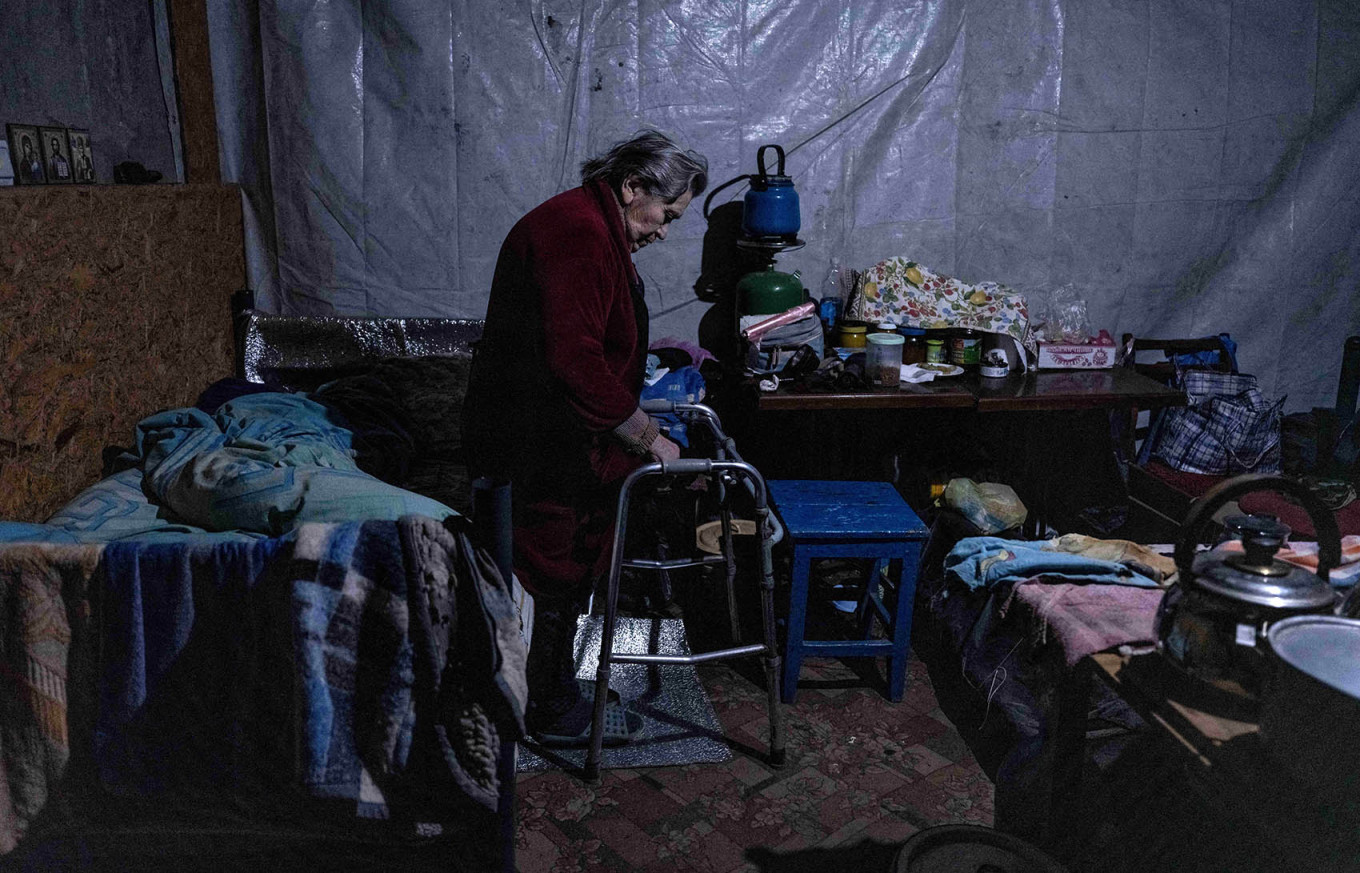
Ukrainian military analyst Ivan Stupak believes the situation deteriorated due to the Ukrainian army’s manpower shortage and the extensive length of the front.
“The front line stretches from the Sumy region to Kherson — over 1,000 kilometers. We lack both personnel and equipment. Meanwhile, the Russian army has a numerical advantage and is actively using air power for bombing raids,” Stupak told The Moscow Times.
At the same time, Russia is advancing east of Pokrovsk after making progress there and cutting the critical Pokrovsk-Kostiantynivka highway this winter. Since then, the front line in this area has steadily pushed forward and now overhangs Pokrovsk from the northeast.
Russia is currently advancing in several directions, including toward the towns of Rodynske and Myrnohrad. If these settlements fall, Pokrovsk will be effectively encircled and logistics for its garrison will be disrupted by Russian drones.
Russian military analyst Yan Matveev said that Moscow is advancing northeast of Pokrovsk on several axes to stretch the already depleted Ukrainian forces.
“Russian infantry in small groups infiltrate behind the lines wherever they can and wait for reinforcements. They are usually killed by artillery and drones, but Ukraine lacks the infantry and equipment to maintain a continuous line of defense or to hunt down each group,” said Matveev. “The situation in Pokrovsk is more fragile than it was two weeks ago. If Ukrainian forces can’t hold, Russia could launch a full assault on Pokrovsk and Myrnohrad before the end of summer.”
Experts note that although Russian troops suffer heavy losses, they are able to make progress through sheer numbers.
Stupak predicted that Ukraine may soon lose the city.
“I believe the city will likely be abandoned within 60 days. Russian forces are gradually narrowing the salient,” he told The Moscow Times. “The corridor into Pokrovsk is only about 17 kilometers wide. It’s still possible to enter and exit relatively safely, but if the situation worsens, staying there will become untenable.”
He added that Russia is using guided bombs and drones to destroy any Ukrainian fortifications.
Ukrainian drones are also active.
On Friday, an FPV drone nearly hit Andrei Filatov, a war correspondent for the Kremlin-backed outlet RT. He was riding a motorcycle near Pokrovsk when the drone exploded close to him, just after he passed a destroyed Russian vehicle.
Analysts and Ukrainian soldiers say the situation resembles earlier battles for the cities of Avdiivka and Vuhledar, where Ukrainian forces eventually withdrew after Russian troops launched flanking assaults and threatened encirclement, taking heavy losses while doing so.
Kyiv held those cities until the last moment, resulting in narrow retreats under heavy artillery and drone fire.
Though they look similar to the fight for Pokrovsk, “Bakhmut and Avdiivka were different,” Ilya Abishev, a military analyst for the BBC’s Russian service, told The Moscow Times. “There were many bloody frontal assaults and street fighting. It’s clear that in Pokrovsk, the Russian command is trying to avoid this scenario.”
Abishev said the outcome of the battle will depend on whether Russia manages to cut the Pokrovsk-Pavlohrad road, the supply route for Ukrainian troops.
“If you encircle the city, either the Ukrainian troops leave, or they stay and get captured. In such cases, you can mark the area as taken on the map and report success to the leadership. The city itself also remains more intact,” added Stupak.
Pokrovsk, a city with a pre-war population of 60,000, has been on the front line since January. Fewer than 7,000 civilians are believed to remain. With constant shelling, many of those still in the city live in basements or rely on sporadic humanitarian aid.
It is also home to Ukraine’s only coking coal mine, a facility that had supplied 90% of the country’s needs for steel production before it shut down in January due to the war, threatening broader ripple effects on the Ukrainian economy.
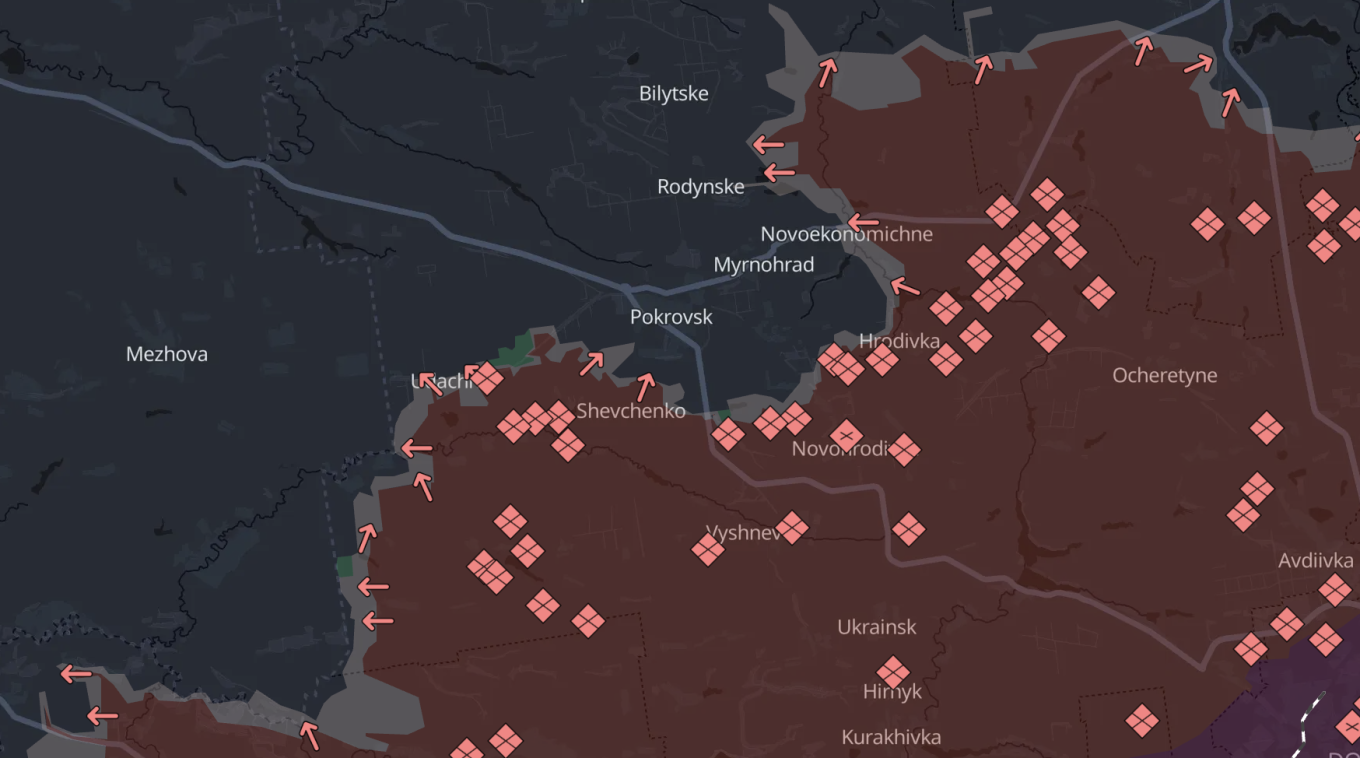
Beyond its strategic location, Pokrovsk is a critical transportation and logistics hub linking Donetsk and Kramatorsk to the broader Dnipropetrovsk region.
“The Pavlohrad-Pokrovsk highway is still operational,” said Stupak. “Despite the heavy presence of Russian drones, vehicles can still dash through at 150 kilometers per hour.”
Ukrainian soldiers have confirmed that moving along roads near Pokrovsk has become increasingly difficult.
“Based on my experience in Kursk, the end of the defense comes when logistics collapse. There, the Russians cut off our route to Sudzha with drones, and our entire defense line crumbled,” a soldier who previously fought in the Kursk region told the BBC.
The road east from Pokrovsk to Kostiantynivka has already been cut off by Russia’s advance.
Stupak said that the loss of Pokrovsk would significantly worsen the situation for Ukrainian forces in the region, opening the way for Russia to advance toward Kramatorsk and Sloviansk, the last major cities in Donetsk under Kyiv’s control.
Some analysts believe that Moscow will use the narrative of a victory in Pokrovsk to strengthen its position in international negotiations. But in practice, neither side is ready to recognize the front line as new borders, and Ukraine’s Western allies have already pledged to ramp up military aid.
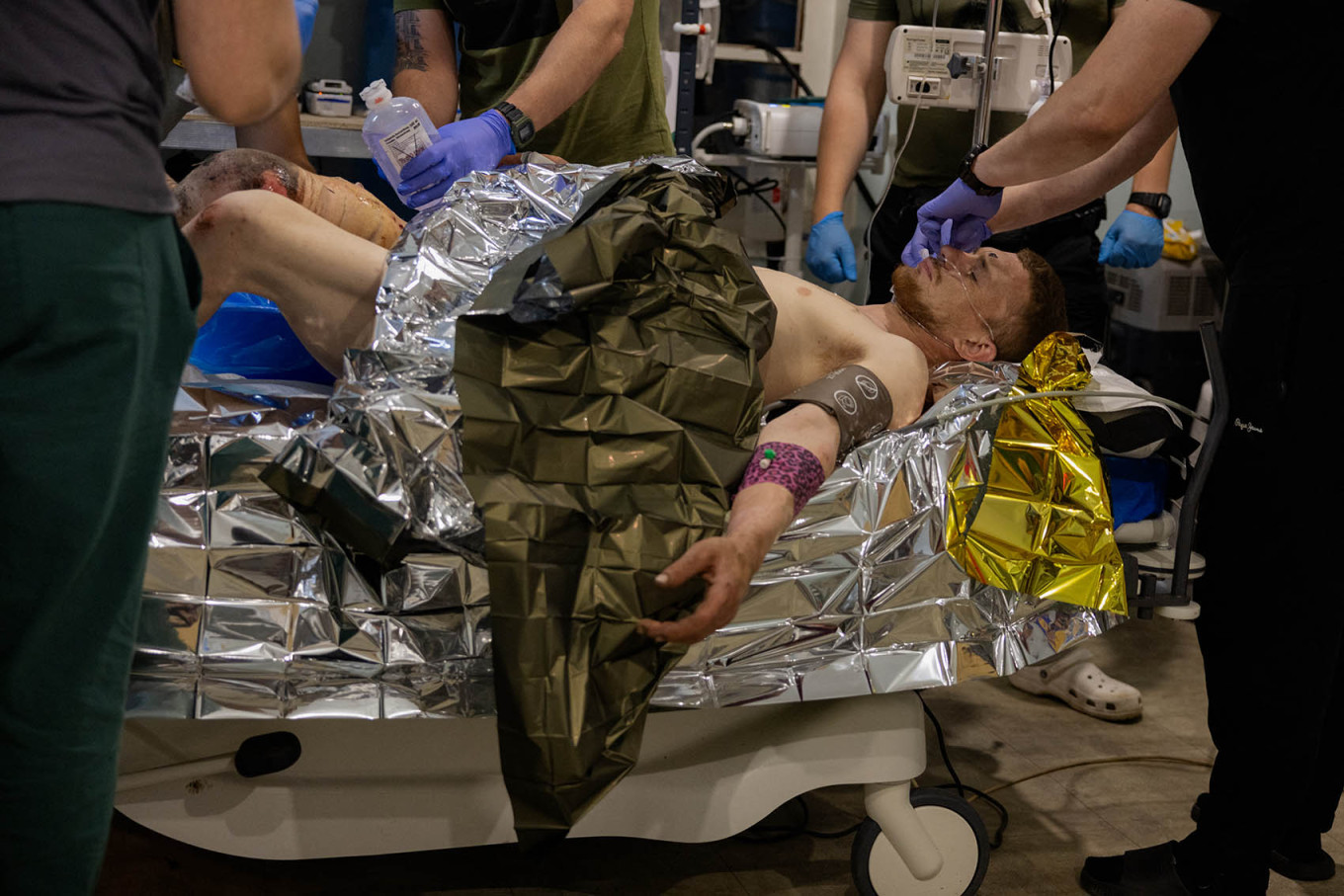
Earlier this month, Trump issued a 50-day ultimatum to Russia to sign a ceasefire with Ukraine or face severe tariffs and secondary sanctions on its trading partners. On Monday, he cut that deadline to “10-12 days.”
But rather than backing down, sources close to the Russian leadership said the ultimatum may have prompted Putin to double down on military efforts, as Moscow resists external pressure and seeks to avoid any appearance of weakness.
BBC analyst Abishev said he believes the offensive is unrelated to Trump’s ultimatum or the negotiations, which he says the Kremlin has no interest in.
“This is not a new offensive. Russia has been conducting active military operations across all fronts since 2023. The goal given to the Russian military by the authorities is to capture all of the Donetsk region, and the battle for Pokrovsk is part of that mission,” he told The Moscow Times.
Although capturing Pokrovsk or even all of the Donetsk region would give the Kremlin a symbolic victory, it is unlikely to change the broader trajectory of the war, analysts say.
“Russian troops will continue their slow advance along different sections of the front, gradually pushing it forward. Capturing a single village and advancing about 500 meters can take Russia a week or more,” said analyst Matveyev.
“The Russian army is like a steamroller — slow, clumsy, but constantly moving forward,” he said. “And this steamroller cannot speed up because the Kremlin has spread its forces too thin.”
A Message from The Moscow Times:
Dear readers,
We are facing unprecedented challenges. Russia's Prosecutor General's Office has designated The Moscow Times as an "undesirable" organization, criminalizing our work and putting our staff at risk of prosecution. This follows our earlier unjust labeling as a "foreign agent."
These actions are direct attempts to silence independent journalism in Russia. The authorities claim our work "discredits the decisions of the Russian leadership." We see things differently: we strive to provide accurate, unbiased reporting on Russia.
We, the journalists of The Moscow Times, refuse to be silenced. But to continue our work, we need your help.
Your support, no matter how small, makes a world of difference. If you can, please support us monthly starting from just $2. It's quick to set up, and every contribution makes a significant impact.
By supporting The Moscow Times, you're defending open, independent journalism in the face of repression. Thank you for standing with us.
Remind me later.



